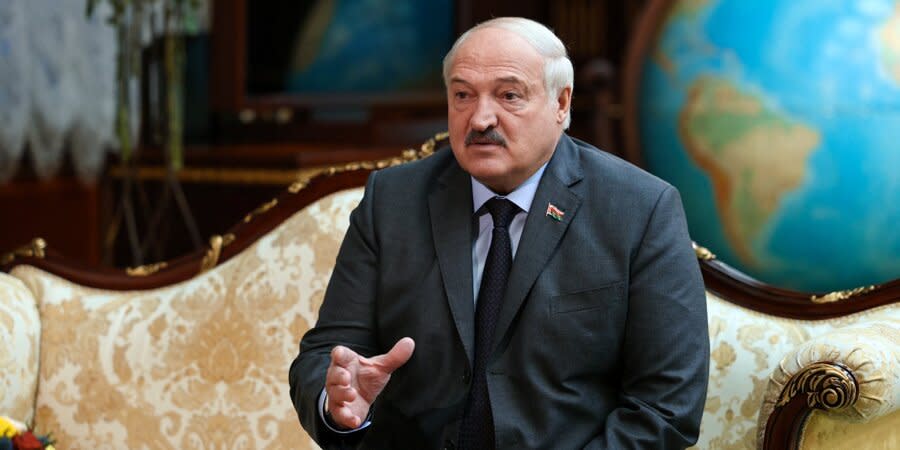EU sanctions against Belarus. What is happening now?

Traditionally, the problem of economic sanctions in the public space is discussed specifically in relation to Russia. But Belarus is hardly mentioned. Yet the status of Belarus is as the same aggressor as Russia. Why? According to the 3rd Article of UN Resolution 3314 (XXIX) of 1974, "regardless of the declaration of war, under the conditions and in accordance with the provisions of Article 2, it qualifies as an act of aggression...The action of a state that allows its territory, which it has placed at the disposal of another state, to be used by that state to commit an act of aggression against a third state". Therefore, it is necessary to proceed from this.
Read also: All the decisions have already been made. Why Putin needed a visit to Lukashenko
The history of sanctions against Belarus has two stages. The first stage are sanctions related to human rights violations, repression of the opposition, massive falsifications during the presidential elections, and brutal suppression of civil protests. It should be noted that this sanctions policy was quite flexible. Thus, on October 29, 2015, the EU Council suspended until February 29, 2016, the freezing of assets and the ban on entry for 170 people, and the freezing of assets of three Belarusian companies. The reason for this decision was the release of all Belarusian political prisoners on August 22, 2015, and the improvement of relations between the EU and Belarus. In addition, the EU recognized that the presidential elections on October 11, 2015 were generally free.
Read also: What is happening on the border with Belarus near the Rivne Nuclear Power Plant
In total, the EU introduced six packages of these sanctions against 195 individuals and 35 legal entities. They provide for the freezing of their assets and the prohibition of EU citizens and companies from providing financial services to the sanctioned persons, the prohibition of persons on the sanctions list from entering the EU, etc. Other countries have introduced similar sanctions.
The economy of Belarus has traditionally depended on special political and economic ties with Russia
The second stage are sanctions connected to Belarusian participation in Russian aggression against Ukraine, which representatives of the world community began to apply with the beginning of Russia's full-scale invasion in Ukraine. The EU introduced such sanctions at the beginning of March. Among other things, the embargo and import from Belarus of wood products, cement products, iron and steel products, and rubber products. The EU banned the export of weapons to Belarus, special equipment for internal repression, technology or software, dual-use products and technologies, goods and technologies intended for the development of military production and technologies or the defense and security sector as well. The EU also banned Belarusian transport companies from road transport within the EU. According to EU estimates, trade restrictions affected 70% of imports from Belarus. As of today, the EU has used almost all traditional sanctions instruments.
It should be noted that in 2021, the EU was the second main trading partner of Belarus (19.9% of the country's merchandise exports and imports), while Russia accounted for 49.0% of Belarus' foreign trade turnover. At the same time, bilateral trade increased by 27.0% in 2021 to EUR 12.9 billion, after a 7.3% drop in 2020 due to the COVID-19 pandemic.
Well, now to the conclusions. The economy of Belarus has traditionally depended on special political and economic ties with Russia, which actually preserved the inefficiency of the Belarusian political and economic system. In particular, we are talking about preferential conditions for the supply of energy carriers and multibillion-dollar loans that no one is going to repay. It is clear that the sanctions against Belarus force the country to seek economic salvation from Russia. Therefore, analyzing the impact of sanctions on the Russian economy, one aspect should be also taken into account — how restrictive measures affect Russia's ability to economically support Belarus.
On January 16 of this year, the European Parliament adopted a resolution on the creation of a special tribunal to prosecute the crime of aggression against Ukraine, in order to punish the senior political leadership of Russia and its allies. At the same time, it was emphasized that such a tribunal should have jurisdiction to investigate the relevant crimes of Alexander Lukashenko and his accomplices. In turn, on January 26, PACE unanimously demanded the creation of a special international criminal tribunal in The Hague to prosecute Russian and Belarusian political and military leaders who "planned, prepared, initiated or carried out" Russia's aggressive war against Ukraine.
In my opinion, one very specific step should be the consequence of this decision — a demand to Belarus to pay reparations to Ukraine for aggression against our country. After all, the current behavior of Belarus fully corresponds to the definition of aggression, which was mentioned earlier. With regard to sanctions, as in the case with Russia, in the future their cancellation should be strictly conditioned by compensatory payments in favor of Ukraine.
The goals of the EU sanctions policy against Belarus are obvious.
Read the original article on The New Voice of Ukraine

